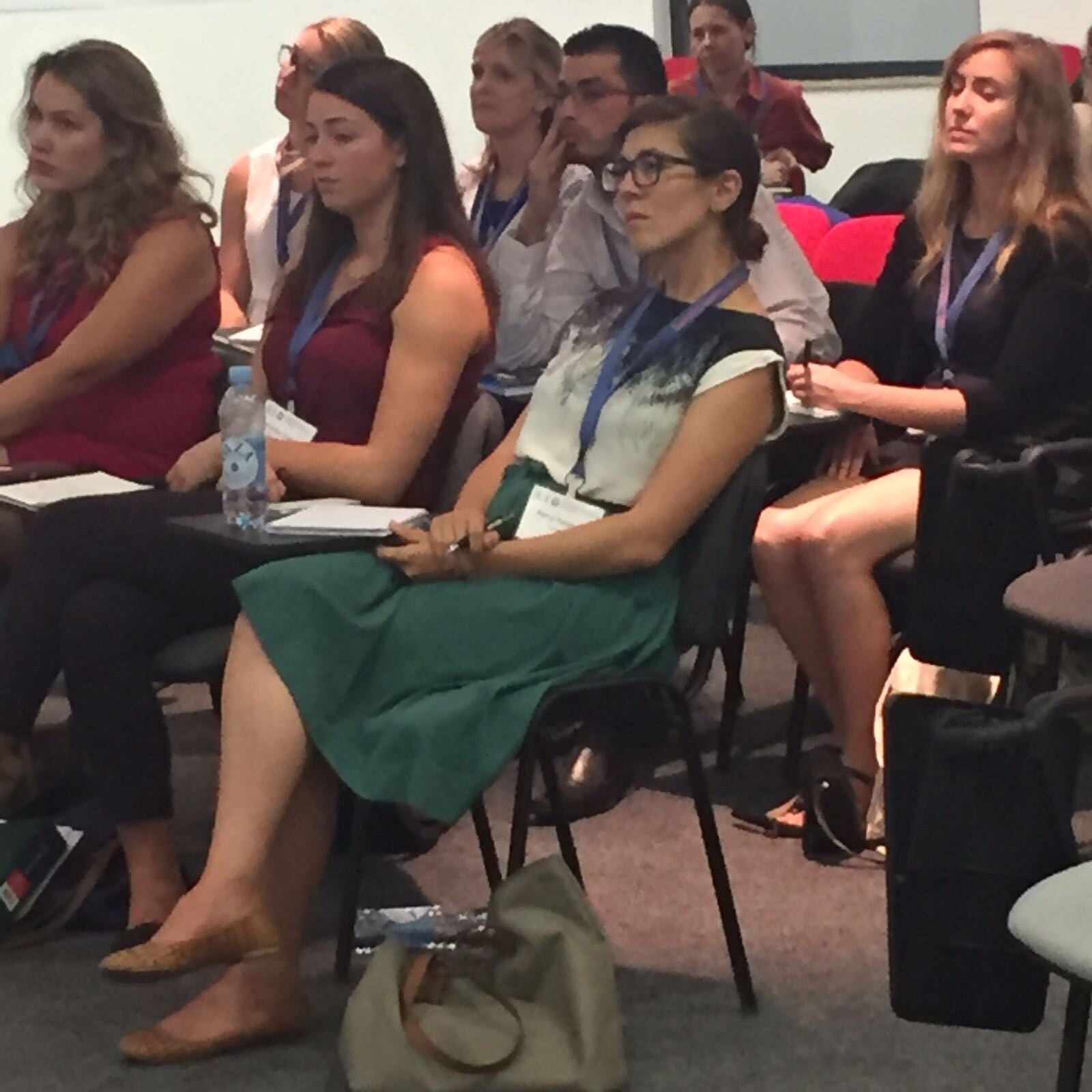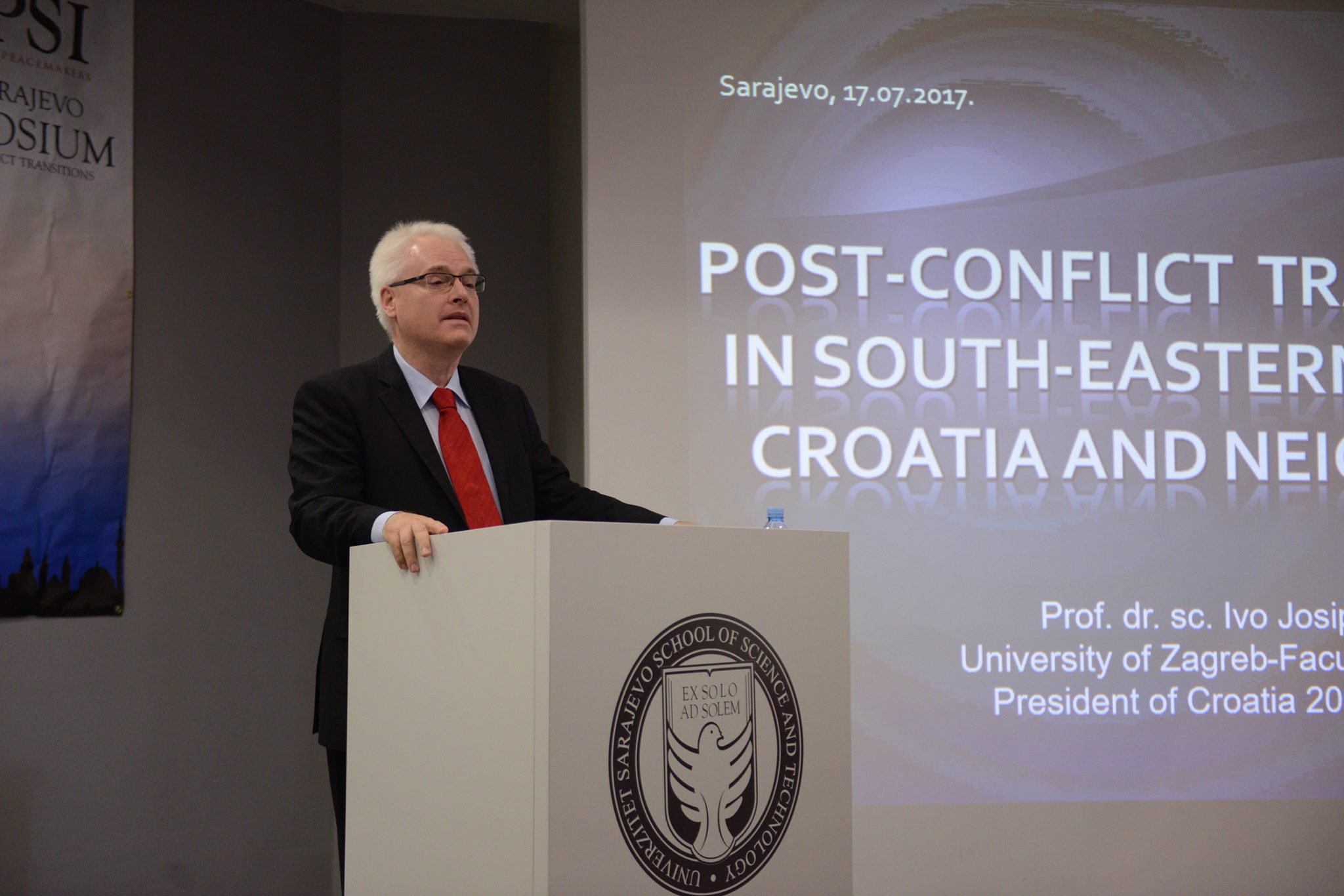
by Milicia Njegovan
On Monday, July 17th I saw the opening of the International Peace and Security Institute’s (IPSI) inaugural Symposium in Sarajevo, Bosnia & Hercegovina (BiH). This is the first IPSI symposium to be held in a country that has recently started its transition from conflict to peace. The symposium is an intensive two-week program held in partnership with the Sarajevo School of Science and Technology (SSST). The goal of the symposium is to expose those working in or studying peacebuilding to experts with knowledge in post-conflict strategies in the areas of governance, security, economics and justice and reconciliation.
Surprisingly, two former presidents from the region were chosen to launch the event, focusing on the topic of Managing Post-Conflict Transitions. The decision to have politicians mark the opening of this event was peculiar. This decision came as unexpected for two reasons. First, it is difficult for students to learn from politicians in a practical sense. Politicians are not known for being strong teachers and the messages they deliver tend to be carefully created and aligned with party politics. The second, and arguably more significant, element of politicians speaking at this launch, is considering which politicians were invited and which people or groups were left out. By inviting people that represent some groups, and not others, the symposium is missing voices and perspectives from the region that could contribute to a fuller understanding of the difficulties of transitioning.
The former presidents chosen to set the scene for managing post-conflict transition were former Croatian President Mr. Ivo Josipovic and former BiH president Mr. Ejup Ganic. Both men are engaging public speakers. Mr. Josipovic made many references to his musical past and love of film but largely stuck to a speech focused on his accomplishments while in office. For his part, Mr. Ganic shared jokes about asking the intervening parties during the conflict in the early 90’s for a doctor and their sending a priest, and with a smirk later referenced “Sex & the Grad” or Sex & the City in one of his anecdotes. Mr. Ganic broadly spoke about refugees returning and education but more as an ending to his lecture than a full topic. This would all be fine if the lectures had been accompanied by a more unguarded or unfiltered type of sharing about the transition in each of their respective countries. Both men, as former presidents and still very much public figures have given numerous interviews and just as many speeches. These can all be accessed via Google. What new can be learned from former presidents now if nothing new is being shared?
The second and more important reason of why choosing former presidents in this setting is an interesting decision is simply tied to who is given space to contribute and create knowledge and who is not. The public has heard all that Mr. Josipovic and Mr. Ganic are ready to share so why not pass the mic to less privileged and connected voices? It would perhaps have been more insightful to hear from returned refugees on drivers that brought them back and what resettlement has been like. Or alternatively, to listen to front line trauma workers helping citizens piece together their lives and as a result affect the lives of immediate families and by extension community networks.

This symposium is geared towards those currently involved in the broad category of peacebuilding and those studying it. If the highly connected, English speakers of the region are primarily drawn on for insight and direction, who is represented in our understanding of transition? Whose needs and perspectives are the plans based on?

